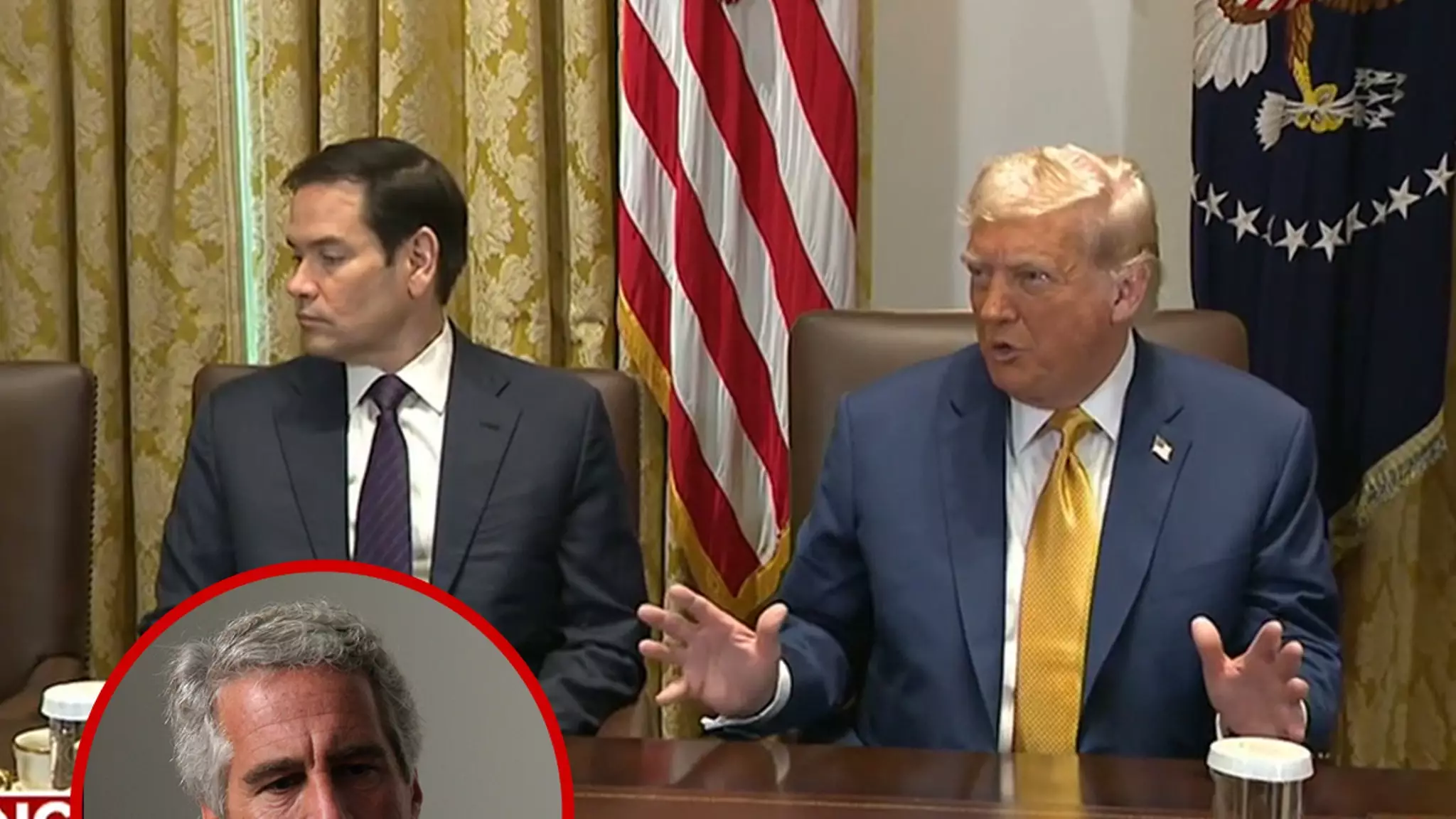The recent exchange between President Donald Trump and a reporter reveals much more than a mere awkward moment; it exposes the fragile veneer of political rhetoric and the tangled web of official narratives regarding Jeffrey Epstein. When confronted about the DOJ’s findings on Epstein’s death and the alleged “client list,” Trump’s dismissive and defensive response underscores a tendency among powerful figures to sideline uncomfortable truths in favor of emphasizing national achievements or diverting attention elsewhere. This interaction isn’t just about one question from a journalist; it’s a reflection of how those in power often undermine inquisitiveness that threatens their constructed version of reality.
The incident also highlights the strategic misdirection employed at higher levels of government. Instead of addressing the core questions about Epstein’s connections or circumstances, officials and representatives shift the conversation towards “success stories” or tragedies that elicit public sympathy, effectively dismissing doubts. This tactic serves to reinforce an illusion of control, where transparency is sacrificed on the altar of political expedience. It suggests a deliberate effort to inhibit critical scrutiny—an attempt to control the narrative rather than confront uncomfortable facts.
Contradiction and Confusion: The Illusion of Truth
Complicating the picture is the inconsistency in official statements. The DOJ’s recent declaration that no evidence exists of a “client list” or that Epstein was murdered contradicts prior insinuations by high-ranking officials, including Attorney General Pam Bondi. Bondi’s earlier hints about documents involving Epstein’s “clients” and the related files on important political assassinations create a murky landscape of information—one where truth is fragmented and easily manipulated.
White House Press Secretary Karoline Leavitt’s efforts to downplay Bondi’s comments reveal an underlying attempt to muddy the waters further. By framing the documents in question as “all paperwork related to Jeffrey Epstein’s crimes” and dismissing the existence of a “client list,” government officials craft a narrative that is selective and carefully curated. This strategic ambiguity fuels skepticism, as the public is left to wonder whether significant evidence has been suppressed or simply never existed in the first place.
The dichotomy between public statements and leaked or hinted information highlights a pattern: official silence often masks uncomfortable truths. The highly anticipated document releases in 2020 turned out to be largely bland, containing only publicly available information. This reveals a disturbing reality—what we see is often a carefully constructed illusion designed to placate but not truly inform.
The Power of Critical Inquiry in a Deceptive World
In this climate of ambiguity and obfuscation, the role of skepticism becomes crucial. Questioning authority and demanding transparency are acts that threaten the comfortable illusions maintained by those in power. The reaction of authorities—scolding, dismissing, or distracting—serves as a warning: the establishment prioritizes control over truth.
The skepticism voiced by legal experts like Epstein’s former lawyer, who dismisses the existence of a “client list,” aligns with a broader narrative: the idea that the infamous sex ring conspiracy is more fantasy than fact. But this dismissiveness only fuels suspicion, especially considering the history of cover-ups involving powerful elites and their clandestine dealings. The true challenge lies in peeling back these layers of deception and forcing accountability in a system that often regards transparency as a threat.
The Epstein case exemplifies how critical inquiry, once considered fundamental to democracy, can be subdued through strategic silence and misinformation. Yet, it is precisely this relentless questioning—regardless of the uncomfortable truths it unveils—that can eventually illuminate the darker corners of political power dynamics. Only through persistent, fearless examination can the illusion of control be shattered and justice pursued beyond the confines of manipulated narratives.

